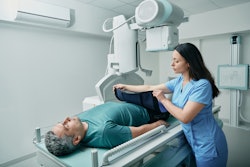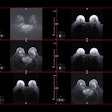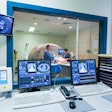Patient feedback about their experiences with MRI exams is an invaluable resource for making the procedure more comfortable, according to a presentation delivered at the recent ECR meeting in Vienna.
Many patients express anxiety around MR imaging, said presenter and doctoral candidate Isabel Nieto Alvarez of Friedrich Alexander University of Erlangen-Nurember in Germany told session attendees. In fact, when it comes to MRI exams, 25% to 30% of patients report "moderate to advanced fear," 1.5% to 6.5% ask for an early stop to the examination, and 36% are dissatisfied with the communication between them and imaging staff, she noted.
"Patients' experience [can] positively or negatively influence outcomes," she explained.
Alvarez's team conducted a literature review that explored how adult patients experience MRI exams, tracking which particular factors influence this experience. Their work consisted of eight studies with which they assessed patient experience at various time points, from pre-exam and preparation to imaging and postimaging.
Alvarez outlined a range of factors that can influence patients' MRI exam experiences:
- Personal or sociodemographic context, such as age, gender, health literacy, and physical condition
- Clinical situation, such as physiological condition, disease type and stage, and clinical process of MRI scan
- Situational factors such as perceived external threats, (lack of) exam information, or interactions with staff
She also highlighted the following patient feedback, noting that most patient quotes (54%) addressed experiences during the exam, while the second most-addressed category was pre-exam experience (21.5%).
| Patient comments on MRI exam experience | |
|---|---|
| Time point |
Patient feedback |
| Pre-exam |
"I had enough to think about without the added pressure of having to read and understand information prior to the scan |
| Preparation time |
"You get that feeling of vulnerability, especially when you realize you don't know much about the procedure." |
| Imaging |
"Loud noise, unable to see outside, enclosed space, anxiety from the unknown, vibrations in the body, having to remain still or hold the breath appropriately." |
| Post-MRI |
I don't know whether [they] knew I had lung cancer, but I didn't feel any empathy or any sort of friendly attitude. I walked out quite upset, actually." |
The review's findings provide a "foundational description of adult patients' MRI experience," Alvarez said, and a sense of the "themes and characterizing factors at each stage of the procedure through the patients' [voices].
"Further experience research needs sociodemographic diversity, clinical process and workflow data, and patient [feedback] to identify and target resources to improve the experience of care," she concluded.



















